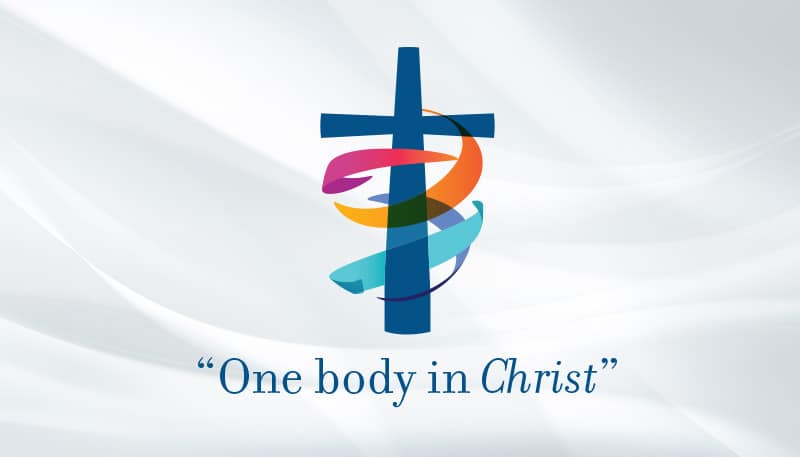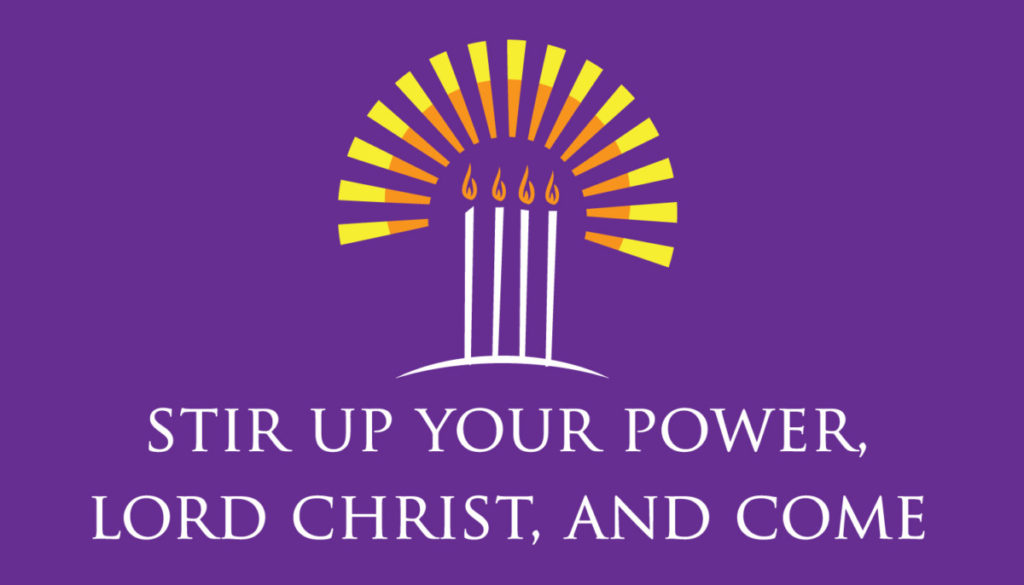
Christ.
One body in Christ. Christ: How do we say or hear this name for Jesus? How do we use God’s name? Like the Small Catechism says, do we use it “to curse, swear, practice magic, lie, or deceive”? Or “to call on, pray to, praise, and give thanks to God?” 1
In the language of scripture, the word “Christ” is “Christos.” It appears as a title and as a name, referring to the Anointed One, the Messiah, Jesus Christ, Christ Jesus, or Jesus the Christ. In the Gospels, people who meet Jesus wonder if he is the “Messiah.” But it is after Easter, in the saving events of the crucifixion and resurrection, that we hear “Jesus Christ” or “Christ Jesus” named as the one who in fact accomplishes our salvation. St. Paul centers everything he teaches on the message of the cross and refers to the name of “Christ” hundreds of times in his letters.
Paul was a church-planter, and his letters reveal how diverse those early churches were, both in terms of whom they comprised and in what they believed. Paul writes to the Christians in Corinth in response to a letter he has received from them about tensions in their community. People are divided. They are gossiping and putting each other down. Some claim allegiance to one leader; other factions rally around a different teacher. Some think the person who baptized them was the best. Some believe they possess the only right way to worship. Some point to their spiritual gifts as the most important. Some argue about how they ought to interact with the government and the culture around them. Although Paul has the authority to call them to allegiance to him, he gets himself out of the way so that the death and resurrection of Jesus Christ remains central. It is in Christ – not in their practices – that they are made one.
Note what Paul says:
10 Now I appeal to you, brothers and sisters, by the name of our Lord Jesus Christ, that all of you be in agreement and that there be no divisions among you but that you be knit together in the same mind and the same purpose. 11 For it has been made clear to me by Chloe’s people that there are quarrels among you, my brothers and sisters. 12 What I mean is that each of you says, “I belong to Paul,” or “I belong to Apollos,” or “I belong to Cephas,” or “I belong to Christ.” 13 Has Christ been divided? Was Paul crucified for you? Or were you baptized in the name of Paul? 14 I thank God that I baptized none of you except Crispus and Gaius, 15 so that no one can say that you were baptized in my name. 16 I did baptize also the household of Stephanas; beyond that, I do not know whether I baptized anyone else. 17 For Christ did not send me to baptize but to proclaim the gospel—and not with eloquent wisdom, so that the cross of Christ might not be emptied of its power.
We all know that the church struggles with these same tensions today. Meetings, emails, and phone calls express our concerns about how we are to live together in our congregations. Our contexts are different. The shape of ministries in cities, farmland, and towns varies. Some of us expect the church today to be the way it was 10 or 20 years ago. Some complain that their pastor does not do things the way Pastor So-and-So did. Generational shifts have been predicted, but now we are living in the tensions of change. Churches, businesses, and organizations are in transition. People have different opinions about everything, and the gaps between us only seem to be widening.
That means the words of St. Paul over two thousand years ago are so relevant for our life together and even the survival of the church today. Paul reminds us that we not only preach Christ crucified and risen; in baptism, you and I are joined to Christ the Anointed One. “And it is God who establishes us with you in Christ, and has anointed us, and who has also put his seal on us and given us his Spirit in our hearts as a guarantee.” (2 Cor. 1:21-22).
In our baptism into Christ, we are made one. Baptism doesn’t make us identical, nor does it take away our differences. We will go to meetings where different opinions are expressed, but at the end of the day, those who are in Christ avoid the kind of gossip that was going on in Corinth. Healthy communities do not talk about, they talk to. They live as one.
Right now, your congregation is concluding another school year. This synod is moving toward a Synod Assembly. All of us live in a culture that tries to pit us against each other. In this time, may we live our belief that it is in the foolishness of the cross that God’s greatest wisdom and gift is known. May you live as though you are one body in Christ, because you are. One. Body. In. Christ.
+ grace and peace,
Bishop Dee Pederson
2024 Synod Assembly Theme Series - Reflection #1
2024 Synod Assembly Theme Series - Reflection #2
2024 Synod Assembly Theme Series - Reflection #3
2024 Synod Assembly Theme Series - Reflection #4
2024 Synod Assembly Theme Series - Reflection #5
Please feel free to share, print and use Bishop Dee’s reflections however it fits best in your congregation’s communications. Congregations can also use this for a devotion for any group, committee or council gathering.


